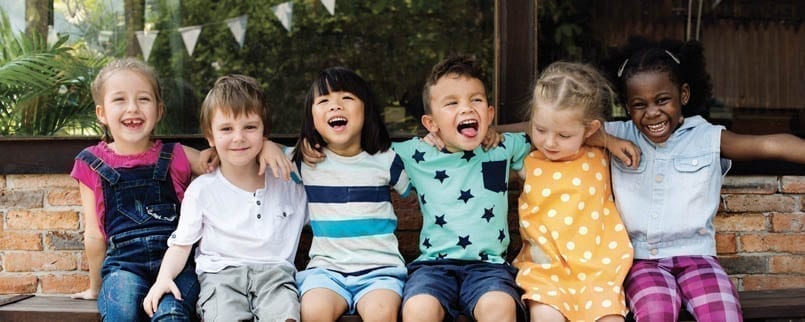26 Apr 2020 Friends: Fostering healthy, sustainable relationships
by Kellie Bishop
When we think back to our childhoods, some of the most precious memories are those spent with friends. Childhood friendships are crucial to social and emotional development. Children learn how to interact and communicate with their peers while also developing a sense of empathy and appreciation for the feelings and opinions of others.
You may notice that your child acts differently depending on which friends they have spent time with recently. This is normal behavior as they develop social skills and learn age-appropriate behaviors from different friends.
Friendships also promote healthy mental development as those with fulfilling friendships tend to be happy, but those who are isolated and left out tend to develop depression and low self-esteem. Friends can and will impact your child in many ways, both positive and negative, so it is crucial to help foster healthy and sustainable friendships for your children.
We should strive to model good friendship behavior for our children. As adults, we often get busy and lose touch with longtime friends. You may find yourself being more friendly with people you work with or parents of your child’s friends because those are the people you can currently connect with and relate to. This will teach your children how to adapt and socialize with different people in various situations and allow them to observe how friends can come from different places in our lives.
Kids often think they have to just be friends with other kids in their class. They do not realize that it is ok, and healthy, to befriend kids in other classes or grades, kids at church, or other kids within their neighborhood. Modeling these good friendship skills and adaptability will demonstrate for your children how to socialize with different types of people to form many meaningful relationships.

As parents, we tend to encourage our children to form friendships with our own friends’ children. While this is ok and makes our own friendships easier when our children get along and can play together, it is also important to understand our own child’s personality and encourage the friendships that are important to them. If your child loves sports, he may not have as much in common with a child who prefers art and theatrical play. It is important to teach your child to form friendships with those who may have different interests, but be careful not to force those relationships if they do not come naturally. If your child gets along really well and is happy with another child on her t-ball team instead, encourage that friendship. Meaningful and fulfilling friendships will allow your child to develop socially and emotionally without becoming anxious about “fitting in.”
Friendships help form who we are, both positively and negatively. Therefore, you want to make sure your child is not befriending someone who may encourage negative behavior or introduce your child to dangerous situations. However, you also do not want to discourage your child from being friendly to someone who may need a good influence. Encourage your child to be friendly to everyone because you never know when that positive influence could be exactly what another child needs in a friend.
Fostering healthy friendships and encouraging friendly interactions between your child and other children will allow your child to develop the social and emotional skills that are crucial to appropriate adult interactions. Encouraging healthy and fulfilling friendships for your children will help them make lifelong memories of those friendships while also encouraging the development of social skills that will help them throughout their lives.
- Dig yourself up some family adventure - March 30, 2021
- Teaching children love and self-acceptance - January 31, 2021
- Keeping Kids’ Health Flying High - October 29, 2020









